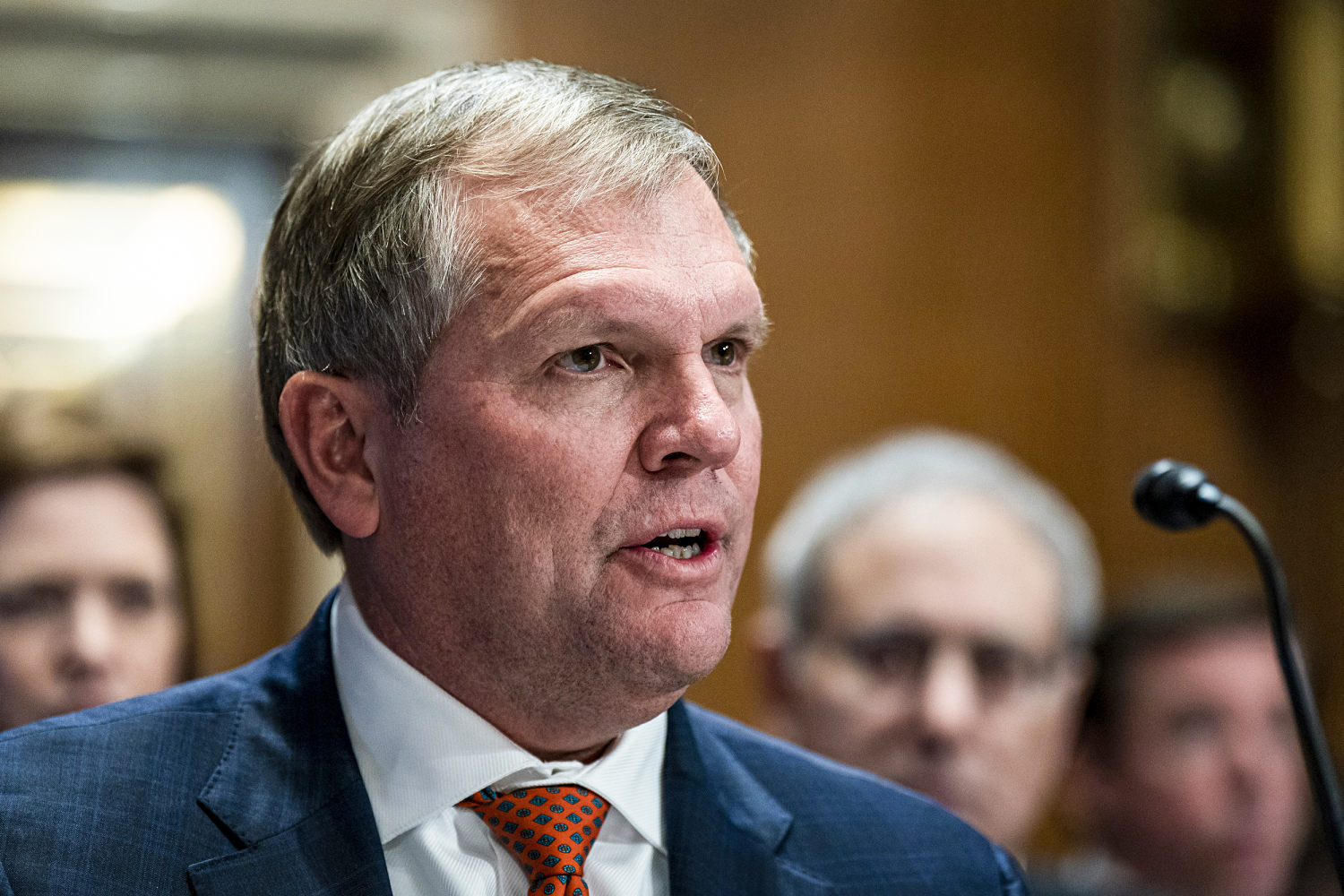
EAST PALESTINE, Ohio — One year after a Norfolk Southern freight train derailed in the heart of East Palestine, Ohio, the wounds in this working-class town still run deep.
“We’re at the same spot we were 12 months ago because we don’t feel safe anymore in our own community because of the damage that could have been caused,” said gas station proprietor Anna Sevi-Doss, whose Marathon pump and adjoining liquor store butt right up against the very same railroad tracks that saw the derailment just blocks away.
Sevi-Doss said she only drinks bottled water, refusing to believe claims from Norfolk Southern and the Environmental Protection Agency that water in the town is safe to drink.
Norfolk Southern’s CEO, Alan Shaw, says that while a lot of progress has been made, much more needs to be done.
“We’re working with the community,” Shaw said in an exclusive one-on-one interview with “NBC Nightly News.” “We’re investing in the environmental remediation. We’ve established a valuation assistance program for people who don’t want to come back — they can sell their property and we’ll cover any sort of differences in the market. And we’re investing in the health and safety of the community.”
Those investments include direct relief to residents totaling $20.7 million, $25 million to fund a new safety training facility for first responders and $4.3 million to protect drinking water in the area.
Read more on this story at NBCNews.com and watch “NBC Nightly News with Lester Holt” tonight at 6:30 p.m. ET/5:30 p.m. CT.
But for local business owners like Joy Mascher, it’s not enough. She has owned her flower shop “Flowers Straight From the Heart” for over a decade, weathered tough times and the Covid-19 pandemic, but this incident was about more than the loss of business. Her shop nestles up to Sulphur Run creek, which was directly polluted by the toxic chemical spill. While officials say the water has been decontaminated, Mascher still worries about the next time it rains and the creek water floods her shop’s basement.
“Are they going to be here in 15 years when cancer starts forming in clusters or if that happens?” Mascher told NBC News. “I mean, I don’t want to be a Debbie Downer, but I am concerned. I’m very concerned.”
Seeking accountability
On Feb. 3, 2023, just before 9 p.m. local time, 38 cars of a Norfolk Southern freight train derailed in the heart of East Palestine, off Taggert Street.
Among other cargo, the cars carried hazardous materials such as vinyl chloride and butyl acrylate, known to cause adverse health effects including respiratory irritation and even certain cancers with prolonged exposure.
The response was swift — EPA investigators were on scene in a matter of hours, testing the air and water. Due to the ongoing vinyl chloride spill however, crews had to conduct a controlled explosion days later that sent dark, billowing plumes of smoke and ash into the air over East Palestine. Roughly 1 million gallons of toxic chemicals were released into local waterways like Sulphur Run and the Ohio River.
Thousands who lived in the area right around the derailment were put under evacuation orders. Businesses were shuttered for months, with many having to live out of hotels in communities several towns over.
The Justice Department and the EPA as well as the state of Ohio have filed lawsuits against Norfolk Southern looking to hold it financially accountable for what they contend to be an entirely avoidable catastrophe. And both Sevi-Doss and Mascher are part of a class action lawsuit against the rail company alleging lost wages, loss of property and long-term health concerns related to the spill.
Not all residents are so displeased with Norfolk Southern, however. Just a few minutes off of the main road, homeowner Kathy Rimbey and her husband, Tom, acknowledge that the company has put a lot of resources into rehabilitating the site and town. They were offered a brand-new air purifier for their house despite being outside the evacuation zone — but they say that goodwill gesture raises more concerns than it does provide comfort.
“Well they’re telling us everything’s OK. So why would they offer that?” Rimbey said. She added that they run the purifier daily and stick to only bottled water as well, and are making sure to get regular health checkups to ensure they don’t develop any long term symptoms.
“I’m OK for now, because they have opened up health facilities and things downtown,” Rimbey said. “But I’m counting on our state officials and the federal officials to make them keep their promise.”
When asked about residents’ continued concerns about the safety of the area, Shaw says he can understand their hesitation.
“I’m sensitive to it, right? People want to make sure that they’re going to be safe, and more importantly, they want to make sure that their families are going to be safe and healthy. And so I went back to my team and I said, all right, what can we do to help here? And so we’re now working with the community on a long-term health care fund. People, people want reassurance, and we’re gonna keep our promise to come up with a solution.”
For as long as it takes, Shaw vows, Norfolk Southern will remain in East Palestine until the job is done — be it one, five, 10 years or longer.
But for locals like Mascher, they say that final resolution can’t come soon enough.
“People just need to know that we’re still fighting this, and it could happen in their town as well.”
